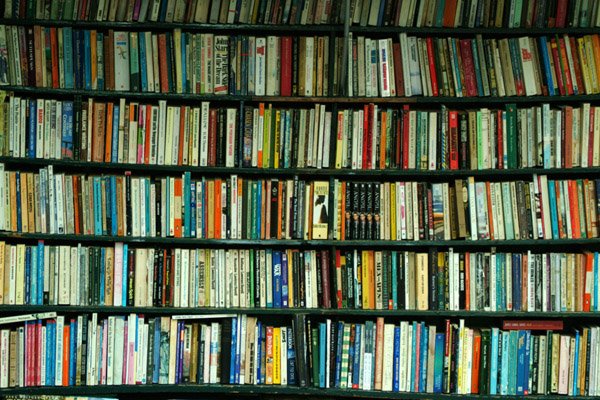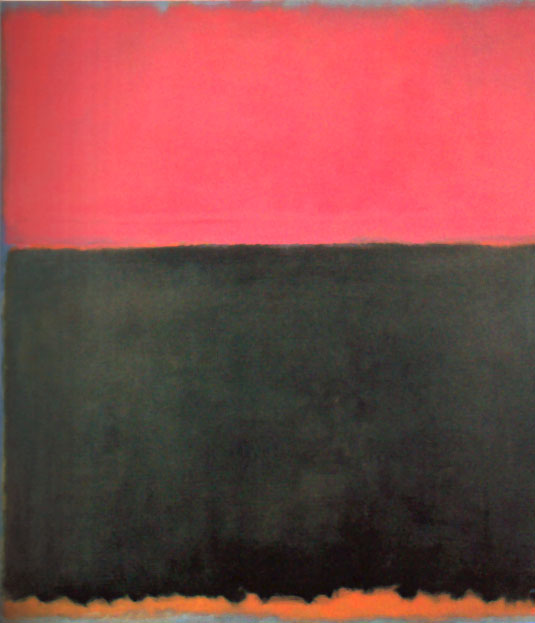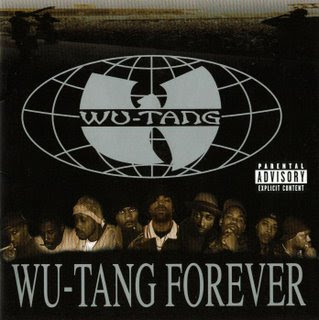relatability

how big an issue is relatability? what i mean is, when you are reading something, how much of your interest in it is the direct result of relation? i think it could be argued that relationships are what every book is about one way or another. this means all things relatable (ie, the relations between characters, the relations between reader and book, the relations between words and ideas, etc).
Music/Writing?
I understand some folks must write in silence, but for others – myself included – musical accompaniment helps lubricate the fingertips.
Do you listen to music when you write? If so, what kinds of stuff? Do you avoid music with lyrics?
How do you use music? Do you use the emotion of the music to help guide (or instigate) the emotion of your work? Do you ride beats?
Although I am constantly (obsessively) hunting for, acquiring, and listening to new/different albums, there are a few go-to favorites I throw on when it’s time to get down with the wordage. Here are just a few of my personal recommendations — I would love to hear from other people about their practices and/or their recommendations:

Glenn Gould – A State of Wonder: The Complete Goldberg Variations (1955 & 1981)
What U Readin’ 4?

Ok, not to start the same argument all over again, but certain comments got me really wondering: if you think a book that meets or surpasses what Ulysses did for its time is not being created during our time, why the fuck are you writing? Better yet, why the fuck are you reading? To make the daisy chain just a little bit longer? Sure, maybe you think Ulysses as a book is actually boring (read: work) (haha), and the next book object that would do what it did now would likely look nothing like it (which is, I think, another misconstruing of my point: of course it wouldn’t! otherwise it wouldn’t be new…), but for my money if you are so dead in the water over the prospect of innovation (read: ingenuity, fun), and honestly believe that people out there (outside yourself) aren’t writing in such ways, I have no idea what business you have near printed matter, much less discussing it in a public forum. There are enough people to stir the swill. But really, though: why?
Addendum to this question (prodded by Q’s from Christian): Are you an amibitious reader? Why/why not? How?
James Joyce does not exist

I’ve been thinking a lot lately about books considered legendary, classics, for their language and singularity in time. And then for how those books, over that time, have become books considered timeless and vital to the cause, innovators without which… etc. Joyce, Beckett, Stein, Faulkner, etc. The big names everybody deigns to have read, often via schooling, and who you often hear the more serious critics and often honchos in publishing referring to at large. Seems like I’ve seen or heard of a lot of speech where people in the publishing industry (particularly the larger sections) are talking about their influences and what they like, and many of them referring to these classics, and even if they haven’t said it aloud surely they would not shake their head at the idea that these books are the foundations of how we’ve come to where we are, and etc.
So, then, it becomes confusing to me, in this reckoning, when I think of how most any of these books, if approached today, would not exist. I can’t think of most any publisher, even the major and innovative independents, that would release Ulysses again right now, if instead of an accepted masterpiece, it were a third book by some Irish guy who had published a collection of short fiction and a weird novella. I can’t see even the more edgy presses like Dalkey doing it, or FC2 (EDIT: actually, FC2 recently published Vanessa Place’s La Medusa, which is the closest thing I’ve seen to doing what I’m talking about, which means they might have, maybe), or any of the other countless innovative-based upcroppings. Even the more “languagey” presses often don’t do books that are super-languagey, despite the seeming overwhelming admission that those monsters are the ones that defy time, and sell, perhaps gradually, forever. Maybe it would happen, but it would be a long fight, and a wellspring. I certainly can’t see a major doing it. That kind of freaks me out. Not only in that these works would not exist, but that their influences would not exist either, effectively turning off the power they’ve had in moving things forward over the time they’ve been around.
But those books sold then and sell now (and are curriculum!) for a reason, and part of it is because people since then are being taught not to read what they do not understand. A gradual and stuttered concept that could, over another gradual and stuttered period, be reversed.
I Like Howard Finster A Lot.
httpv://www.youtube.com/watch?v=ERRxtwPDFZc
Howard Finster on why he did what he did:
JC: How did this start?
HF: Well, you know. Like, if you had a place itching up here on your head, Johnny? And the first time you put your hand up here you put your hand where it is—don’t matter where it is, you put your hand on it, you know? And if you was to ask me to scratch it, I wouldn’t know where to look. See, I just had a feeling to build this garden, like you know when you have a feeling right where to scratch.
The other half of the interview after the jump.
READ MORE >
Editors with ‘Intentions’

I’d like to hear some stories about people’s experiences with editors who use their position of personal contact as a way to flirt or otherwise sexually provoke the writers that submit to them. Seems like I can think of a bunch of male editors who I have seen show a tendency for this even in just their outward blogging stances, and I am interested to think about it more. I would say I’d include female editors in this but I have not seen that happen.
Anyhow, has anyone run into a situation like this? Where it seemed the editor was using his or her ‘power’ to try to elicit more out of the relationship than just literature? Any uncomfortable or strange interactions? How do these things begin, play out? Feel free to post anonymously, or use alternate names, if you feel like keeping it private. But I’m really interested.
Hey, I got a rejection a couple of days ago!
httpv://www.youtube.com/watch?v=pWStaRmuXzY
I kind of like rejections, now. I have gotten so many they no longer really cut my heart out like they did at the beginning. But, you know.
How do you feel about rejection?
What I Read While I Was In Europe
With two 10+ hour days of flying, plus several train days sitting between parts of Paris and Italy (including one where Ken and I went on a loop between the two, continually fucking up our connections), I had a lot of time during the 12 days of traveling in Europe with which to spend with my head stuck in a book. As a result, I plowed through 4 books and the beginning of a fifth, all works in translation, including titles by Jacques Roubaud, Alain Robbe-Grillet, Eric Chevillard, Zoran Živković, and Werner Herzog.
Here are some brief thoughts on each:
The Great Fire of London by Jacques Roubaud (Dalkey Archive)
Kicked off the trip with this fat badboy from Dalkey, which carried me up to Washington DC and then through several days in Paris. It’s one of the more original premises and executions of a book I’ve seen in a while, and no surprise in that it is from a major Oulipian. Basically, the book is a book about the book itself more than a book of normal concerns. Not quite a writer writing about writing (thank god), but more a writer spooled in the blank space between such, and crushed in his weird onslaught of memory, a dream conceit of trying to compose a novel that never exists, and the crippling brainspace of having lost a wife. Not quite nonfiction, not quite not, a text about text that manages to do a lot of beautiful examinations of life, such as making jelly, and the descriptions of shapes of rooms and light, among which I was surprised at how compelling he was able to keep the compulsion alive across such a massive tome that essentially is all talk of what it is over being what it is, but then extending through that to actually become the blank. Terrifying in the most on-its-face banal of ways, and electric for its method. Felt right to read this one in Paris, which I had not even realized the connection of which (nor, I swear, did I mean to bring all French authors to France, it just happened).
html giant vs. htmlgiant
word.
It’s really hard to make a new compound word, especially when one of those ‘words’ is an acronym. Those of us born before, say, 1990 will remember that html stands for “hypertext markup language.” That the former two words are themselves compound words leads this post to a place a don’t wanna go. 70% of the time people searched the erroneous “html giant,” which I think points to a reluctance, even skepticism, of new words. I wonder how long it took for “the morrow” to become “tomorrow.” The revolutionaries wanted it today, and they said the morrow. So I say to you today: htmlgiant


.jpg)